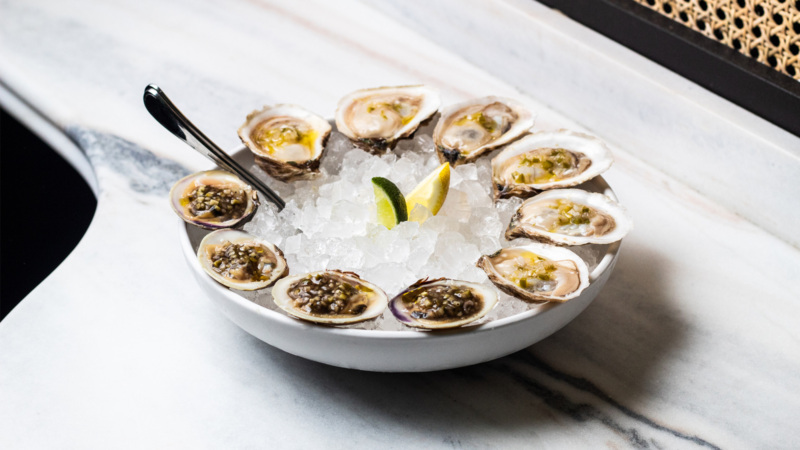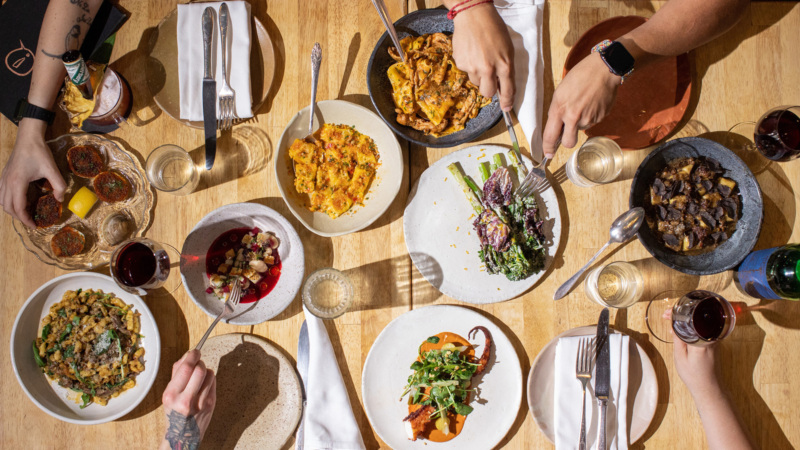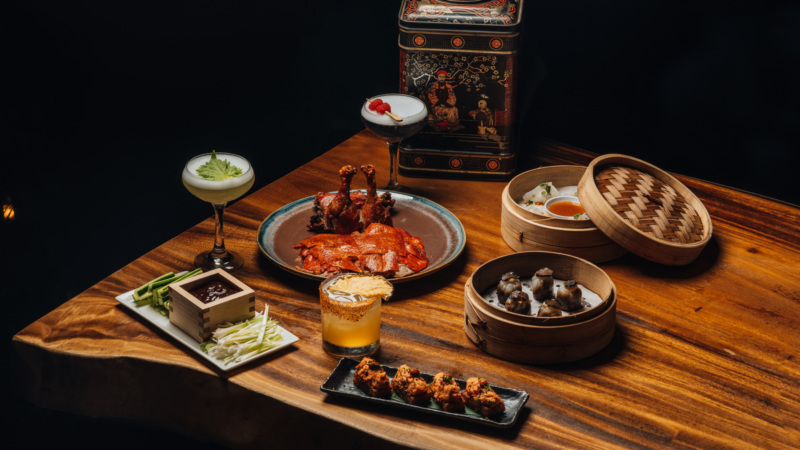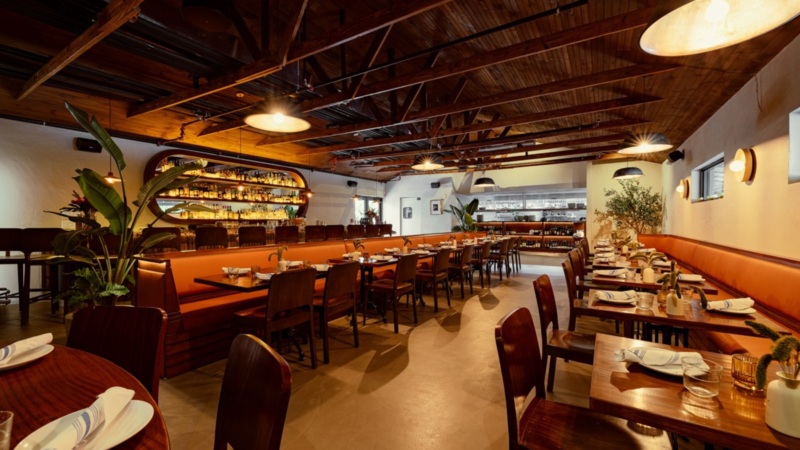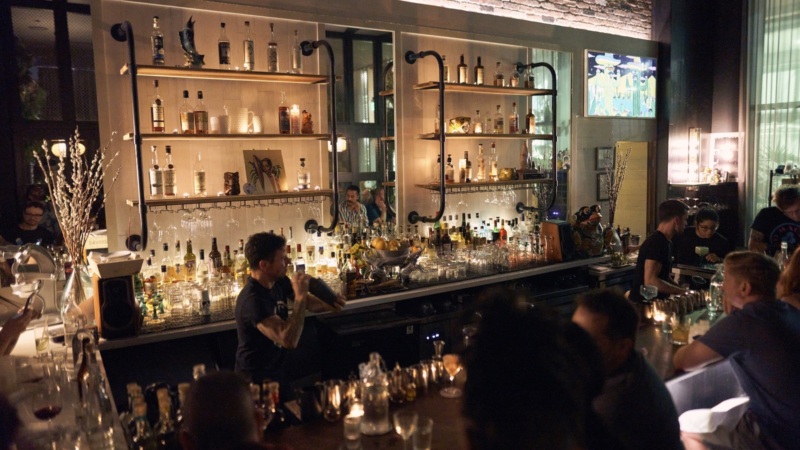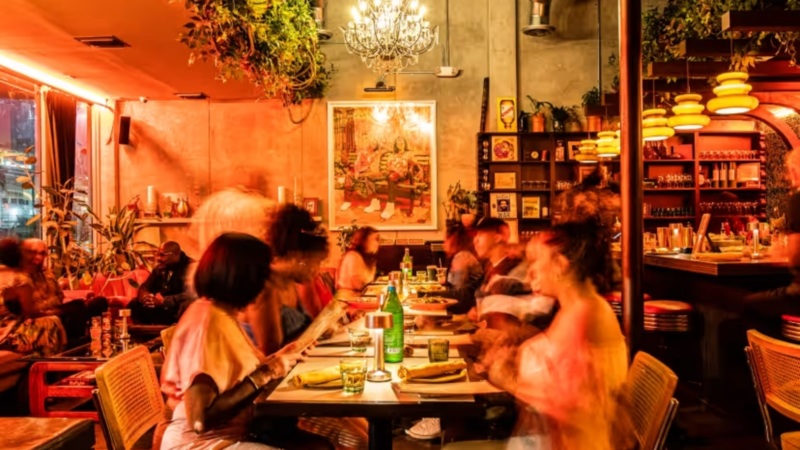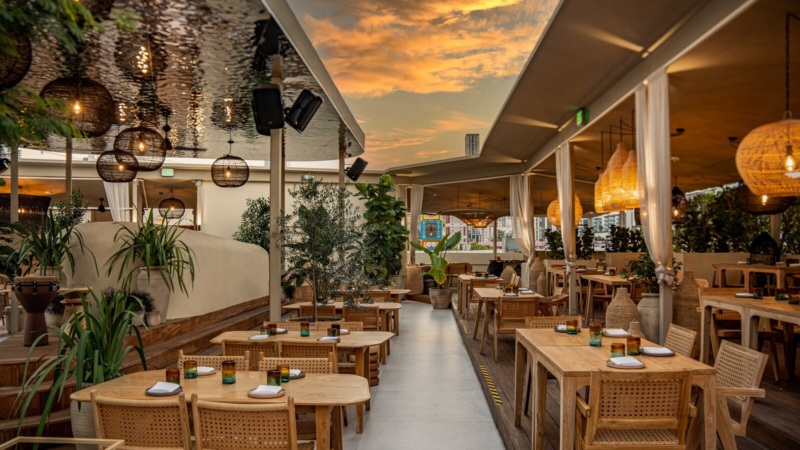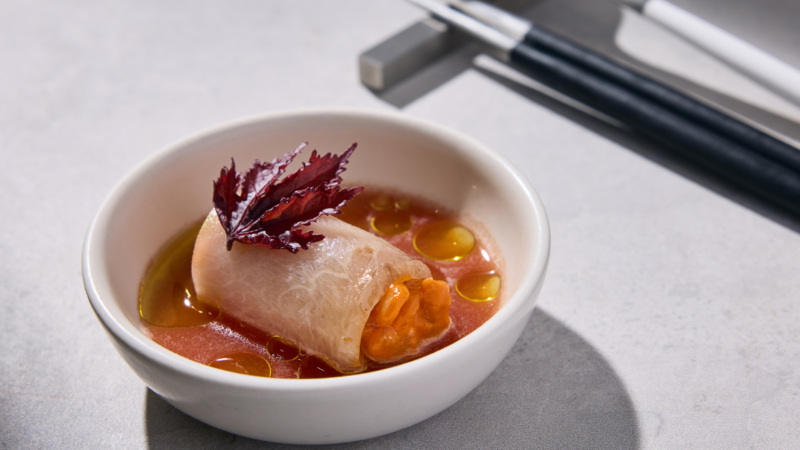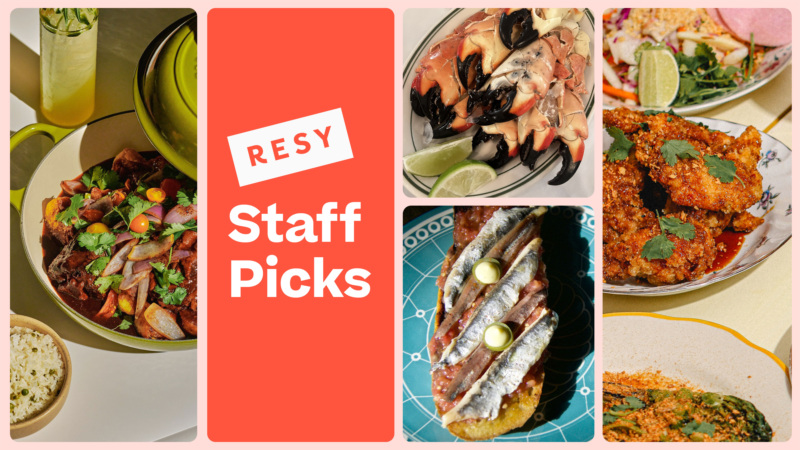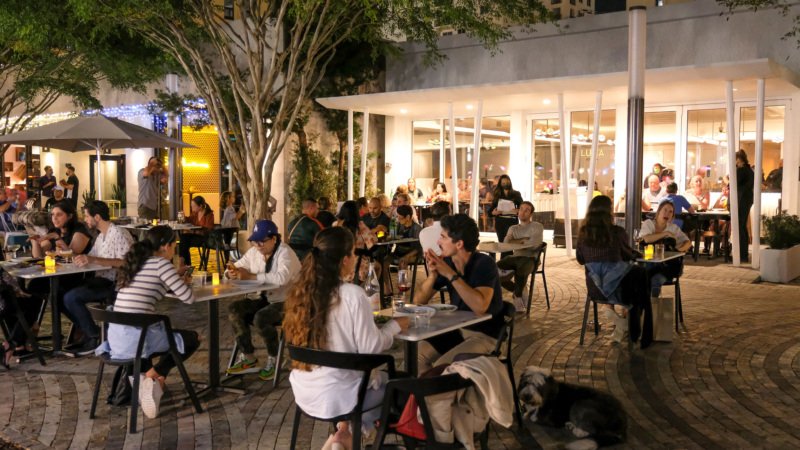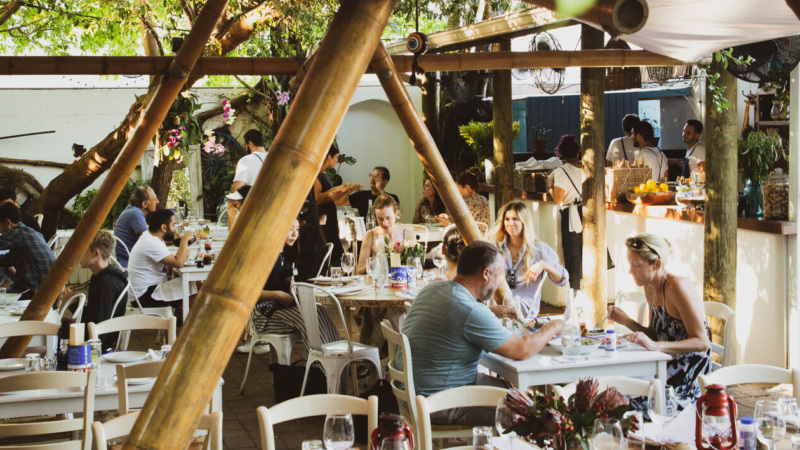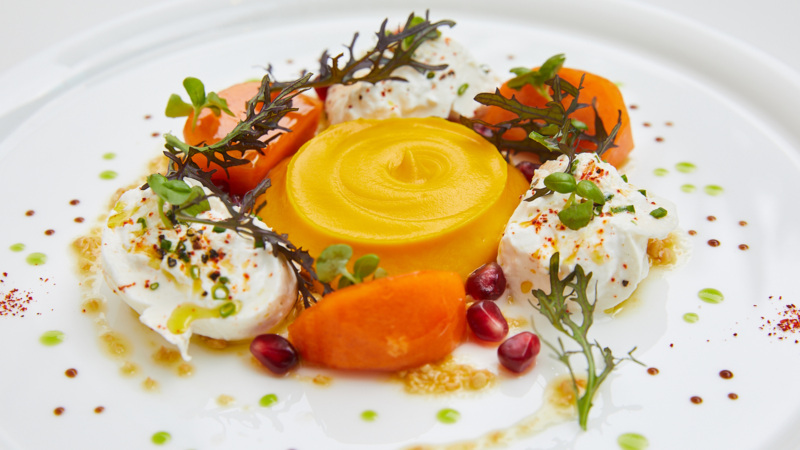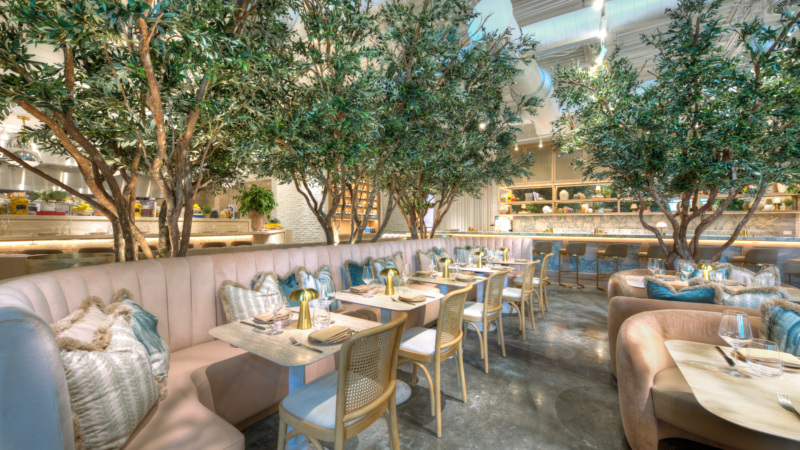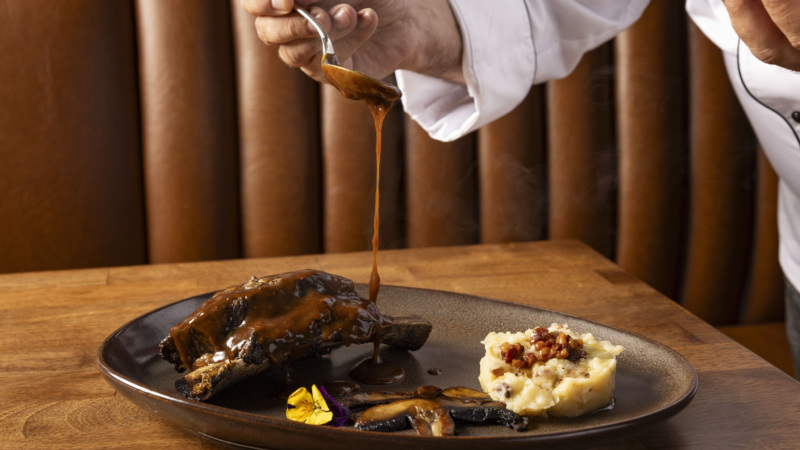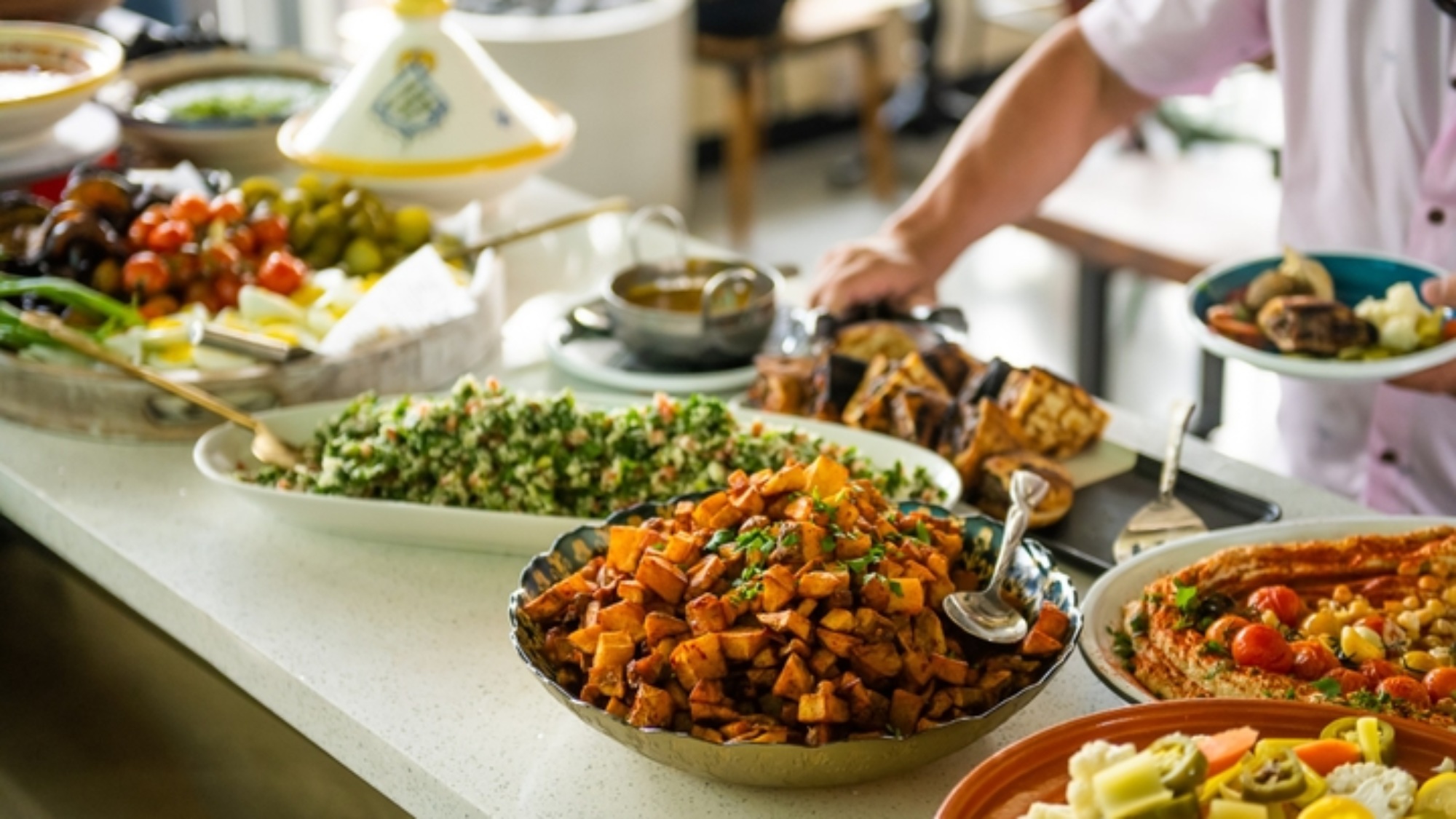
Everything You Need To Know About Jaffa Israeli Kitchen
Before you go to a restaurant, what do you want — or need — to know most? In our series, The Rundown, we’re sharing all the essentials about Resy restaurants — our newly opened, old, and soon-to-be-favorites spots.
Smell those spices wafting from the kitchen? That’s a sign you’ve made it to Jaffa Israeli Kitchen, helmed by Executive Chef Yaniv Cohen, also aptly known as the Spice Detective.
At his first brick-and-mortar restaurant, located in Hallandale Beach’s Atlantic Village, Cohen honors his North African and Middle Eastern roots with flavorful, aromatic cuisine that celebrates his in-depth knowledge of spices. As the follow-up act to his beloved food hall stand in Miami, the full-service Jaffa Hallandale, which Cohen opened earlier this year, brings his homeland to life here in South Florida.
Here are five things you need to know about Jaffa Israeli Kitchen and what you’ll experience when you’re there.
1. They don’t call Cohen the “Spice Detective” for nothing.
Cohen runs a food blog called The Spice Detective, where he explores the medicinal attributes of spices, and has also published a cookbook called “My Spiced Kitchen” focused on Middle Eastern spices to help people feel less intimidated by cooking with these distinctive flavors. “I grew up in Israel in a Sephardic family and everything that we cooked would be flavored with incredible spices, but when I came here, I realized people here, even foodies, are not as familiar with the spices I grew up with,” Cohen says.
Through Jaffa’s menu, Cohen wants to expose guests to the incredible spices they’ve been missing out on – from the unique aromas, colors, and flavors to their natural health benefits. Guest favorites infusing these Middle Eastern spices include the Whole Roasted Turmeric Cauliflower with tahini and cilantro sauce and Za’atar-Sumac Fries with lemon aioli and Moroccan spiced ketchup. “People go crazy for the Za’atar Fries, and it adds so much flavor and nutrients to a simple french fry,” he says.
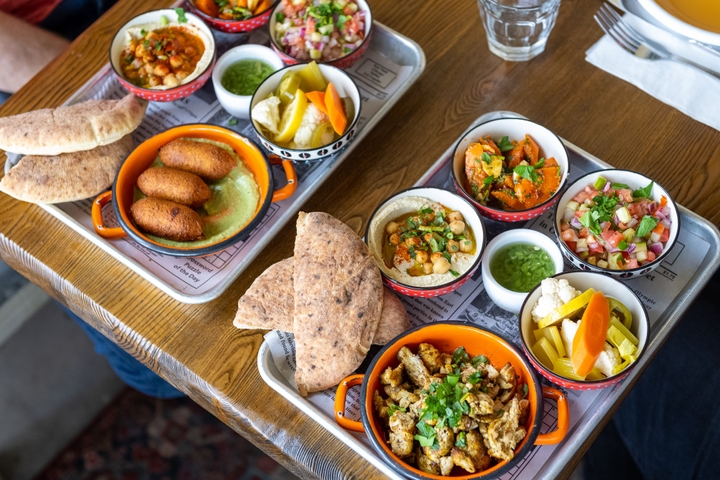

2. Unlike many Miami-Med spots, Jaffa’s cuisine follows Kosher practices.
In addition to serving only Glatt Kosher meats, the entire menu at Jaffa is dairy-free in accordance with the Kosher practice of not mixing milk with meat. That means all vegetable-based and non-meat dishes are fully vegan. For instance, labneh – a traditional Middle Eastern cheese made from strained yogurt that’s a staple of Israeli cuisine – is instead made from coconut at Jaffa. The beverage menu also includes a curated list of Kosher wines from around the world.
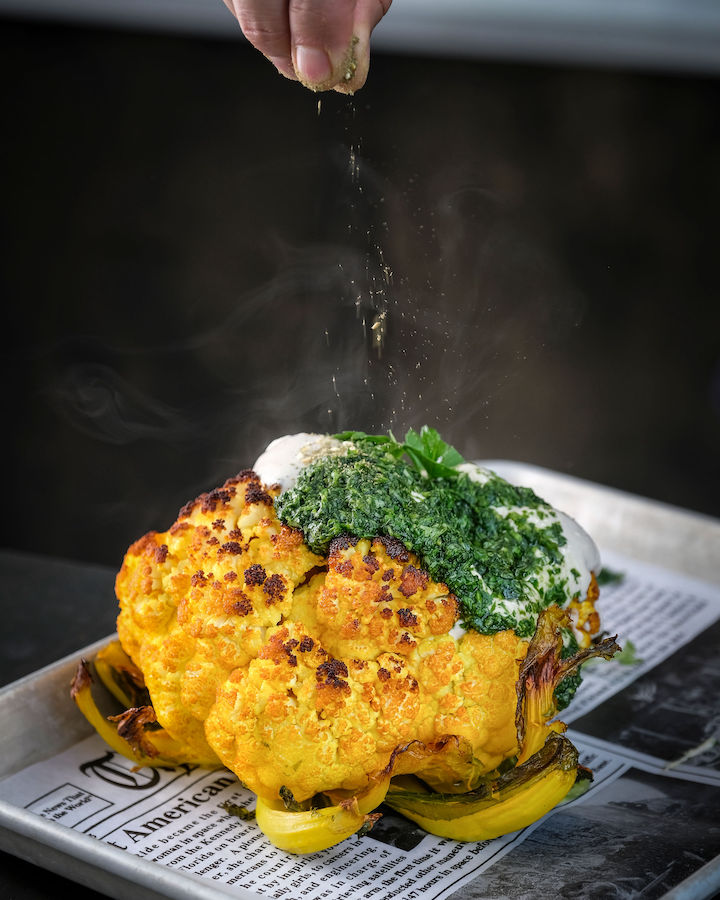
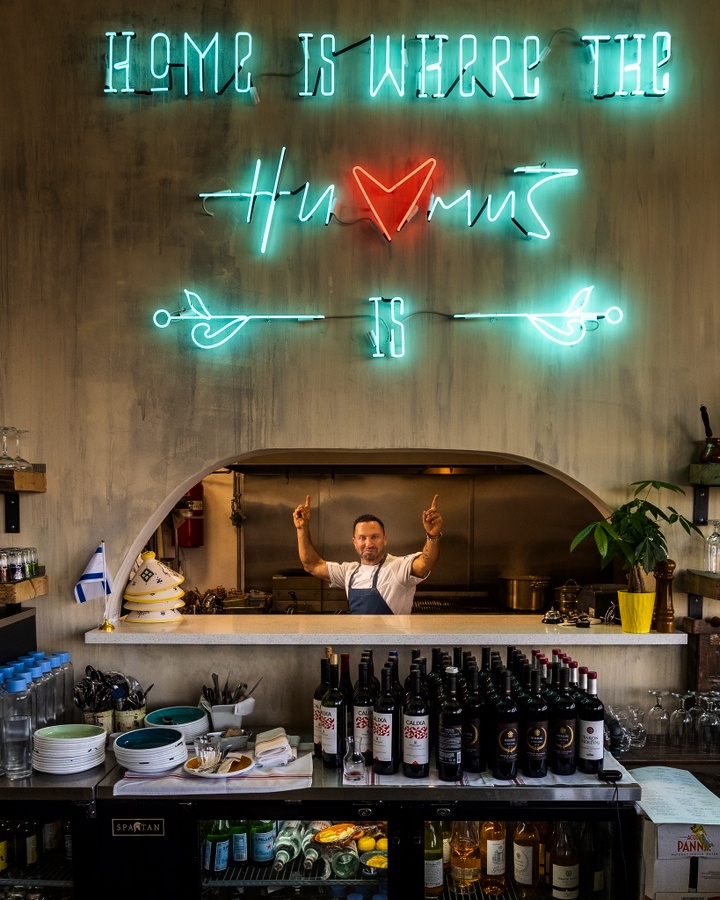
3. Jaffa first opened in a food hall four years ago.
After years in the catering business hosting events for celebrities like Cindy Crawford and David Bowie, The Spice Detective introduced Jaffa to Miami in 2018 with a stall at MIA Market in the Design District (at the time, it was called St. Roch Market). Cohen wanted to share his passion for spices through recipes inspired by his homeland, with the hopes of one day finding a permanent location to provide this kind of cuisine in an Israeli-inspired atmosphere.
“I always knew the market would be almost like a test lab. When you go into a food hall, it’s almost like proof of concept, but we actually never left,” he says. While Jaffa opened its first full-service location further north in Hallandale this year, its quick-service counterpart still remains at the Miami food hall.
4. The new brick-and-mortar will transport you to Israel.
Named for one of the oldest port cities in the world, Jaffa is designed to feel like its namesake Israeli city full of picturesque alleyways, ancient buildings, art galleries, unique boutiques and more. The blue and beige tones of the seaside city abound, with decorative wall accents, colorful patterned throw pillows, and intricate golden lanterns hanging from the ceiling.
Jaffa’s outdoor lounge offers al fresco seating with teak tables, sofas and antique carpets amidst greenery and string lights that come together to create a relaxed yet intimate atmosphere. There are also belly dancing shows on Saturday nights, and Israeli DJ SISO spins Middle Eastern lounge beats on Thursday nights – performing live with a traditional goblet-shaped Darbuka drum.
“One of the biggest compliments is when people say, ‘Wow we feel like we’re in Israel,’” Cohen says. “I’m sharing my culture and giving people a holistic experience I can not do in a food hall – the decor, the music, the atmosphere.”
As it says in neon lights on Jaffa’s walls: Home is where the hummus is.
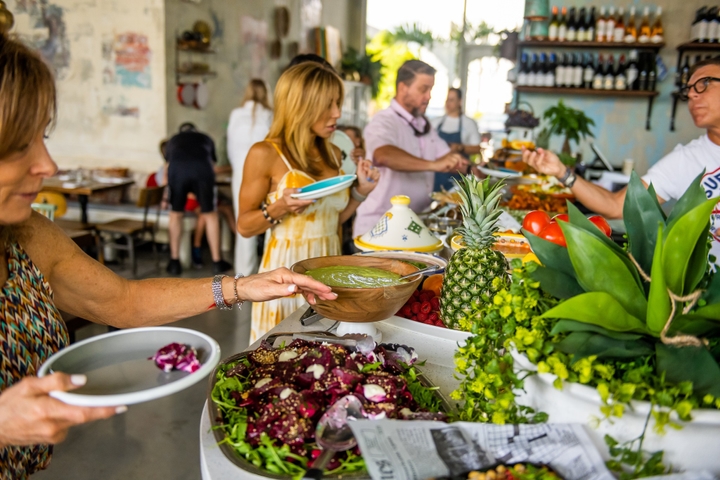

5. Yes, you can celebrate Shabbat here.
Sunday’s Israeli Brunch Buffet and Shabbat Dinner every Friday night are two culinary cornerstones at Jaffa, but there are also family nights and the aforementioned musical entertainment. “Every restaurant is part of a community, and we want the community to feel like we are home. Every night is geared toward a different part of our community,” Cohen says.
The traditional Shabbat dinner at Jaffa features 4 courses for $49 per person, starting with salad, an appetizer, a fish course and meat course, and then mint tea and dessert. The meal also comes with challah bread and Kiddush wine, which are essential parts of the weekly Shabbat ceremony. “A lot of families in the area come because sometimes they don’t feel like cooking,” Cohen says. In appreciation for families in the neighborhood, every Tuesday night, families with kids can also enjoy 25% off dinner at Jaffa.
For brunch lovers, don’t miss out on Jaffa’s all-you-can-eat, Israeli-style brunch buffet with endless options that’ll make you feel like you’ve woken up in the Land of Milk and Honey: vegetables, fish, house-cured salmon, hummus, shakshuka, Yemenite Malawach pancakes, Arayes (grilled meat-stuffed pitas), frittatas, vegan cheeses, and traditional Israeli desserts like babka, rugelach, and dried fruits.
Reservations are highly recommended for these experiences. “Save yourself a table, while helping the restaurant,” Cohen explains. “Reservations are not just about reserving a table for yourself; it’s a tool for the restaurant to manage the operation, from staffing to food ordering.”










